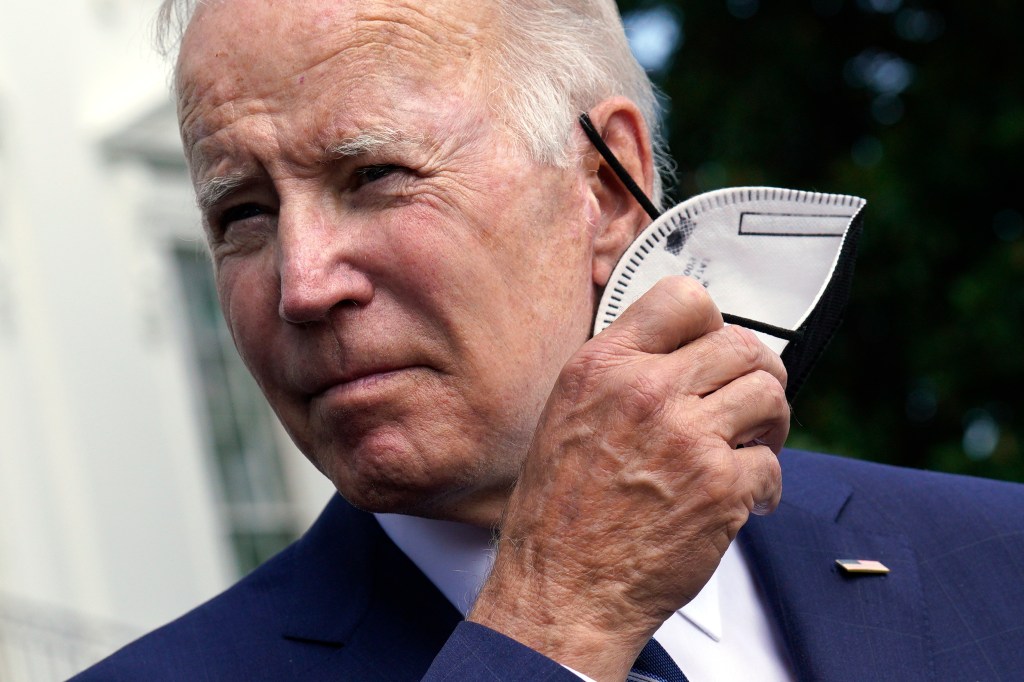The U.S. Centers for Disease Control and Prevention has updated its guidance on face masks, saying loosely woven cloth masks offer the least protection against COVID-19 and N95 and KN95 masks offer the most.
The CDC update doesn’t come out and say Americans should avoid cloth masks but clarifies that some kinds of masks work better than others.
“To protect yourself and others from COVID-19, CDC continues to recommend that you wear the most protective mask you can that fits well and that you will wear consistently,” the CDC said in its first updated mask guidance since last fall.
“Loosely woven cloth products provide the least protection, layered finely woven products offer more protection, well-fitting disposable surgical masks and KN95s offer even more protection, and well- fitting NIOSH-approved respirators (including N95s) offer the highest level of protection,” the CDC says.
Members of the public should consider wearing N95 and KN95 masks in certain situations, such as in crowded public places, the guidance says. Previous guidance raised concerns about supply shortages of those masks. The new guidance says specially labeled “surgical” N95 respirators should be reserved for health care workers.
The agency is catching up to health experts who in recent months have recommended ditching cloth masks for N95 respirators or 3-ply surgical masks as a defense against the highly transmissible Omicron variant. The Mayo Clinic, for example, now requires all staff and visitors to wear N95 or KN95 masks.
“We have known for many months that COVID-19 is airborne and therefore, a simple cloth mask is not going to cut it,” Leana Wen, MD, an emergency doctor and public health professor at George Washington University, said last month.
The CDC is still recommending that children under age 2 not wear masks. Students and staff at all K-12 schools should wear masks, regardless of an area’s vaccination status, the CDC says.
If you do wear a cloth mask, make sure it has multiple layers of tightly woven, breathable material, the CDC says. Don’t wear a cloth mask if it has gaps around the sides of the face or nose, exhalation valves or vents, single-layer fabric, thin fabric that doesn’t block light, or has wet or dirty material.
To get the best fit and most protection out of a cloth or disposable mask:
Wear two masks, such as a disposable mask underneath and a cloth mask on top.
Combine a cloth mask or disposable mask with a fitter or brace.
Knot and tuck ear loops of a 3-ply mask where they join the edge of the mask.
If you’re wearing a disposable procedure mask, fold and tuck unneeded material under the edges.
Wear masks that attach behind the neck and head with either elastic bands or ties, instead of ear loops.
The CDC says N95 or KN95 respirators should fit closely on the face with no gaps and be comfortable when worn properly. N95 masks are so named because they can filter out 95% of particles in the air.
“A respirator has better filtration, and if worn properly the whole time it is in use, can provide a higher level of protection than a cloth or procedural mask. A mask or respirator will be less effective if it fits poorly or if you wear it improperly or take it off frequently,” the CDC says.
The CDC updated guidance says people should consider respirators in certain situations, such as:
While caring for a person sick with COVID-19.
If you’re immunocompromised, an older adult, or at risk for severe illness.
When working and interacting in a job with people who may not be wearing masks.
When riding on planes and public transportation.
In crowded indoor or outdoor public settings.
If your COVID vaccinations are not up to date.
Sources
CDC. “Types of Masks and Respirators”
The Mayo Clinic. “Acceptable masks at Mayo Clinic”
Note: This article have been indexed to our site. We do not claim legitimacy, ownership or copyright of any of the content above. To see the article at original source Click Here











